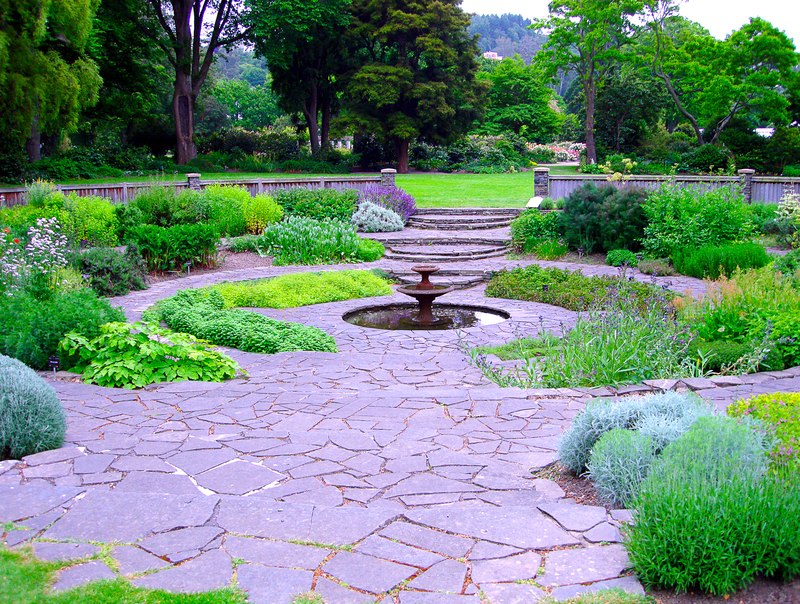Discover 3 Game-Changing Weed Control Practices
Posted on 14/08/2025
Discover 3 Game-Changing Weed Control Practices
Weeds can be one of the greatest challenges faced by gardeners, farmers, and lawn enthusiasts alike. They compete for nutrients, water, and light, ultimately sabotaging your plants and reducing crop yields. To help you achieve a lush, healthy, and productive landscape, we've uncovered three revolutionary weed control practices that will change the way you manage these pesky plants forever. Each approach is backed by science, proven effective, and suitable for both beginners and experienced green thumbs. Ready to reclaim your soil and enjoy a weed-free environment? Read on as we unveil these top strategies for effective, eco-conscious, and sustainable weed management.

Why Is Effective Weed Control Essential?
Weeds are more than just an eyesore. They can:
- Steal vital nutrients and moisture from your desired plants.
- Harbor pests and diseases that further threaten your crops or ornamentals.
- Lower property value and diminish garden aesthetics.
- Increase the cost and labor involved in long-term landscape maintenance.
1. Game-Changing Weed Control Practice: Solarization
Solarization is a highly effective organic weed control technique that utilizes the sun's energy to eliminate weeds, pathogens, and even some pests from your garden soil. Unlike traditional chemical herbicides, solarization is a safe, natural, and eco-friendly method that is gaining in popularity due to its impressive results.
How Does Solarization Work?
Solarization involves covering moist soil with a clear plastic tarp during the hottest weeks of the year. This process traps solar energy, raises the soil temperature, and kills weeds, seeds, and harmful pathogens within the top layers of soil. It's especially effective against annual weeds and seeds lying dormant in your beds.
Steps to Solarize Your Soil
- Clear the Area: Remove any existing plants and debris from the target area.
- Moisten the Soil: Water the soil thoroughly. Moist soil conducts heat better than dry soil, enhancing the effectiveness of this weed control method.
- Lay the Plastic: Cover the soil tightly with a clear plastic sheet (1-2 mil thickness works well). Anchor the edges with soil or rocks to prevent wind from lifting the tarp.
- Wait: Leave the plastic in place for 4-8 weeks during peak summer. This extended period is key to ensuring the heat deeply penetrates the soil.
Benefits of Solarization for Weed Management
- Effective for large areas and heavily weed-infested plots.
- Destroys a broad spectrum of weeds including many annual and some perennial varieties.
- Reduces disease risks by eliminating soil-borne pathogens and nematodes.
- No chemical residues means it's safe for kids, pets, and pollinators.
Solarization brings remarkable results with little environmental impact, making it a cornerstone of sustainable weed prevention.
2. Mulching: Smothering Weeds with Style and Substance
Mulching is a staple in garden weed suppression and for good reason. Not only does it block sunlight from reaching weed seeds and sprouts, but it also regulates soil temperature, retains moisture, and enhances soil health over time.
Types of Mulch for Weed Control
- Organic Mulch: Wood chips, bark, straw, compost, grass clippings, and shredded leaves add nutrients to the soil as they break down.
- Inorganic Mulch: Landscape fabric, black plastic, gravel, or rubber mulch provide a durable, long-lasting barrier against weeds.
Best Practices for Using Mulch to Prevent Weeds
- Apply Thickly: Spread mulch 2-4 inches deep for effective weed suppression.
- Leave Space Around Stems: Avoid piling mulch directly against plant stems to prevent rot and disease.
- Renew as Needed: Organic mulch will decompose over time and should be replenished annually for continued weed control benefits.
- Combine with Landscape Fabric: For extra-tough areas, lay landscape fabric underneath your mulch layer.
Advantages of Mulching for Weed Prevention
- Reduces overall weed emergence by up to 90% in well-maintained beds.
- Retains soil moisture, lowering your watering frequency.
- Improves soil structure and fertility in the case of organic mulches.
- Enhances garden aesthetics and can add valuable organic matter to your soil.
- Limits soil erosion and acts as a buffer against temperature extremes.
The power of mulch is undeniable. By investing a little time each season, you create an ongoing natural barrier against weed invasion and foster a healthier, more resilient landscape.
3. Precision Weed Control with Targeted Herbicides
When it comes to large areas or persistent perennial weeds, targeted herbicide application remains a highly effective tool. Modern herbicides are more selective and environmentally conscious than ever, allowing you to control weeds without harming desired plants. The secret lies in the correct selection, timing, and application method.
Choosing the Right Herbicide
- Pre-emergent Herbicides: These prevent weed seeds from germinating and should be applied before weed seeds begin to sprout. Perfect for lawns and flower beds.
- Post-emergent Herbicides: These kill weeds that are already growing. There are selective and non-selective options, so read labels carefully to avoid damaging your valued plants.
- Natural and Organic Herbicides: Products based on vinegar, clove oil, or other natural acids provide safer alternatives for small-scale weed management.
Pro Tips for Effective Weed Control With Herbicides
- Read and Follow Label Instructions: Proper dosage and timing are crucial for safety and effectiveness.
- Spot-Treat Problem Areas: Use a sprayer or brush to target specific weeds and avoid wasting product.
- Monitor Weather Conditions: Apply during calm, dry weather to prevent drift and improve absorption.
- Rotate Herbicide Types: This reduces the risk of weeds developing chemical resistance over time.
Environmental Considerations in Weed Spraying
- Modern herbicide formulations offer greater selectivity and breakdown more rapidly, reducing environmental impact.
- Avoid over-application and always keep runoff away from water sources.
- Responsible use is key to preserving beneficial insects, soil organisms, and pollinators.
Remember: While herbicides are powerful, they should be used as part of an integrated weed management plan, rather than a sole solution.
Integrating These Weed Control Strategies for Maximum Impact
While each of these revolutionary weed control practices can be successful on its own, combining two or more methods leads to even greater long-term success. This approach is referred to as Integrated Weed Management (IWM) and it's gaining traction with commercial growers and home gardeners alike.
Why Integrated Weed Management Works
- Reduces the risk of weed resistance to individual control methods.
- Minimizes chemical use by incorporating cultural, physical, and biological controls.
- Encourages healthy soil biology and overall ecosystem resilience.
- Enhances the sustainability and long-term viability of your garden or landscape.
Example: A Powerful Combination
- Start with solarization in a new bed to reduce the weed seed bank.
- Apply a thick layer of organic mulch immediately after planting to keep future weeds at bay.
- Treat persistent perennials with a spot application of targeted herbicide for complete eradication.

Eco-Friendly, Long-Term Weed Management Tips
- Pull weeds early: Tackling young weeds by hand or with a hoe is much more effective than waiting for them to mature and set seed.
- Encourage dense planting: A crowded growth of desirable plants shades out potential weeds and reduces the need for weed control chemicals.
- Improve soil health: Healthy, fertile soils support vigorous plants that outcompete weeds.
- Rotate crops: Changing crop types disrupts weed lifecycles and reduces persistent weed populations in edible gardens.
- Monitor regularly: Walk your garden weekly, and address any weed explosion before it gets out of hand.
Conclusion: Transform Your Landscape with Proven Weed Control Practices
Whether you cultivate a vegetable garden, cultivate ornamentals, or maintain pristine lawns, effective weed management is essential for success. By embracing these three game-changing weed control practices--solarization, mulching, and targeted herbicide application--you'll enjoy less work, healthier plants, and more time to relish your beautiful outdoor spaces.
Make 2024 the year you outsmart weeds once and for all! Adopt a holistic approach incorporating these top strategies for weed prevention and long-term landscape health. With the right approach, a weed-free garden is more than a dream--it's a guarantee.
Take Action Now
- Assess your landscape's needs and choose the most appropriate weed management method(s).
- Invest in the right materials and tools to streamline your weed control efforts.
- Stay vigilant and consistent in your practices for a lush, weed-free garden all year round.
Ready to see dramatic results? Start your weed-fighting journey today and enjoy the lush, thriving landscape you deserve!
Latest Posts
Defensive Gardening: Smart Steps to Protect Against Bad Weather
Container Gardening: Where Creativity and Nature Flourish Together
Fun and Safety: Designing a Child-Welcoming Garden

